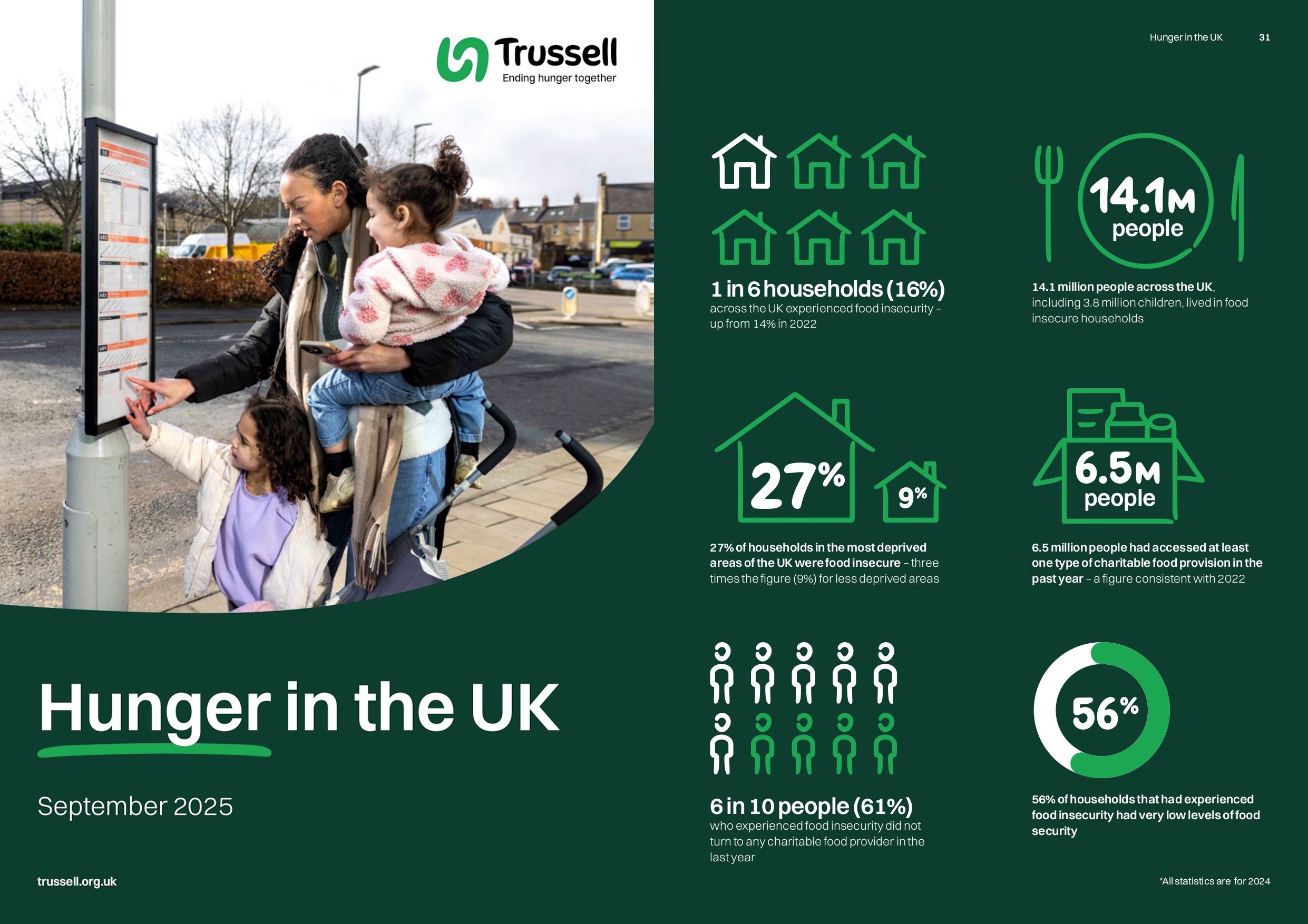T: 01822 851370 E: [email protected]
Visit RSN Survey about life in rural England to find out more.
New Report Finds Millions Facing Food Insecurity
 The Trussell Trust has published its second Hunger in the UK report, offering a comprehensive look at the scale and drivers of food insecurity across the country. The findings show that despite easing inflation, hardship is deepening and hunger is becoming entrenched in many communities.
The Trussell Trust has published its second Hunger in the UK report, offering a comprehensive look at the scale and drivers of food insecurity across the country. The findings show that despite easing inflation, hardship is deepening and hunger is becoming entrenched in many communities.
Key National Findings Include:
- 1 million people were food insecure in 2024 – an increase on 2022.
- One in six UK households experienced food insecurity.
- 5 million people turned to charitable food providers for help.
- Families with children, disabled people, social renters, and people in insecure work face particularly high risks of hunger.
The report underlines that the root cause of food bank use is low income – with the average income of people referred to food banks just £104 per week, compared to £604 for the average UK household.
The Rural Picture
For rural areas, the report highlights an important risk: while average levels of food insecurity appear lower than in urban centres, this can mask the hidden deprivation in remote communities.
The research cautions that these figures reflect broad averages. Pockets of rural deprivation still face high risks of hunger, particularly where local labour markets are weak, housing is insecure, or services are hard to access.
For these households, distance from support networks and limited local provision may compound hardship, leaving them especially vulnerable and often less likely to access charitable food provision when they need it.
Call to Action
The Trussell Trust stresses that food banks cannot resolve the underlying issues. Hunger in the UK is “not a food problem, it’s an income problem”.
The charity is calling for systemic action: an updated social security system, secure and fairly paid work, affordable housing, accessible services, and stronger community support.
Without such change, reliance on food banks risks becoming a permanent feature of life in the UK.




